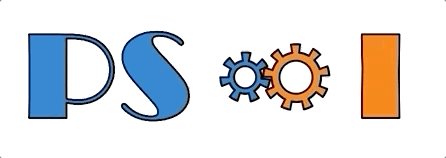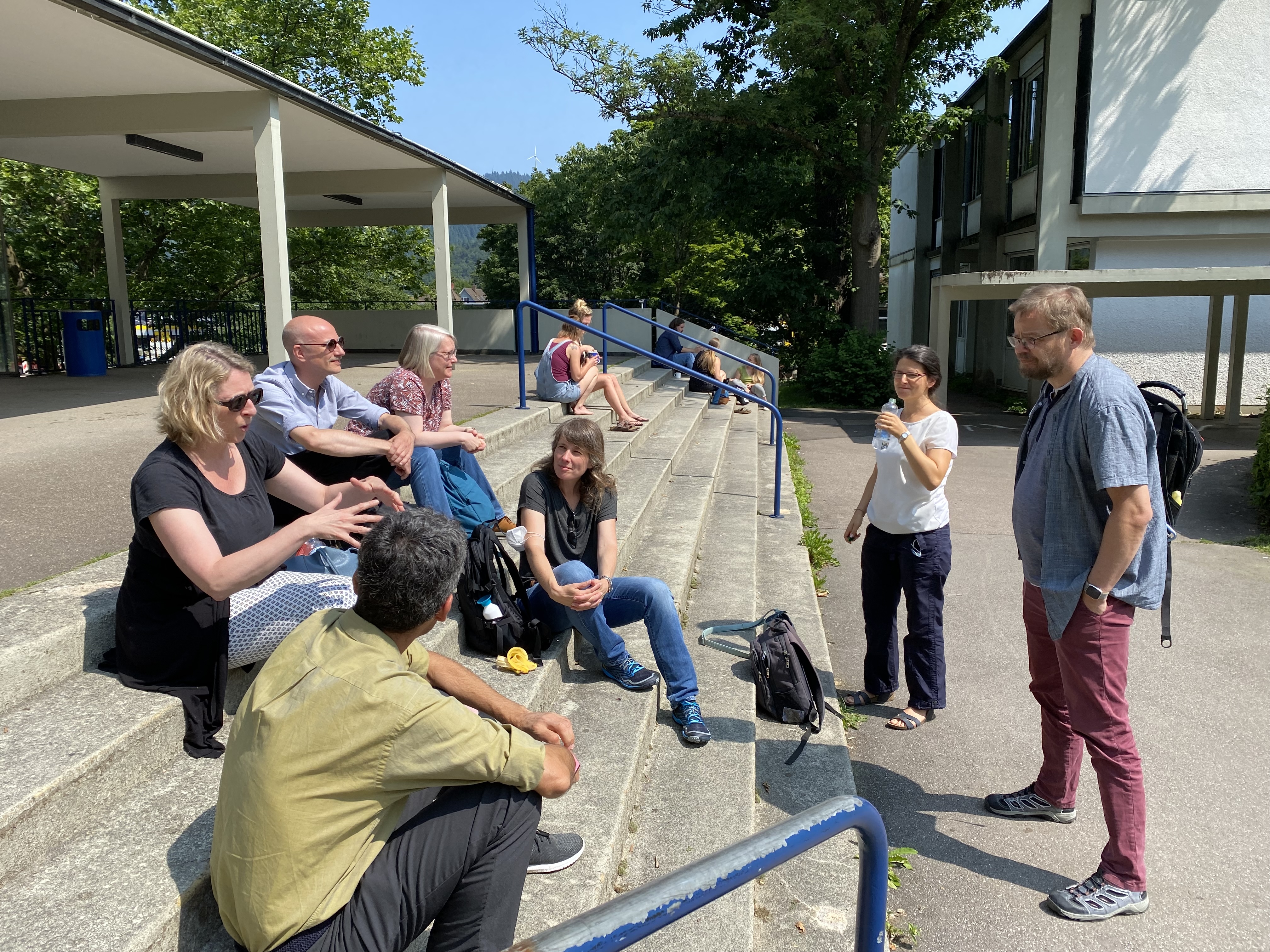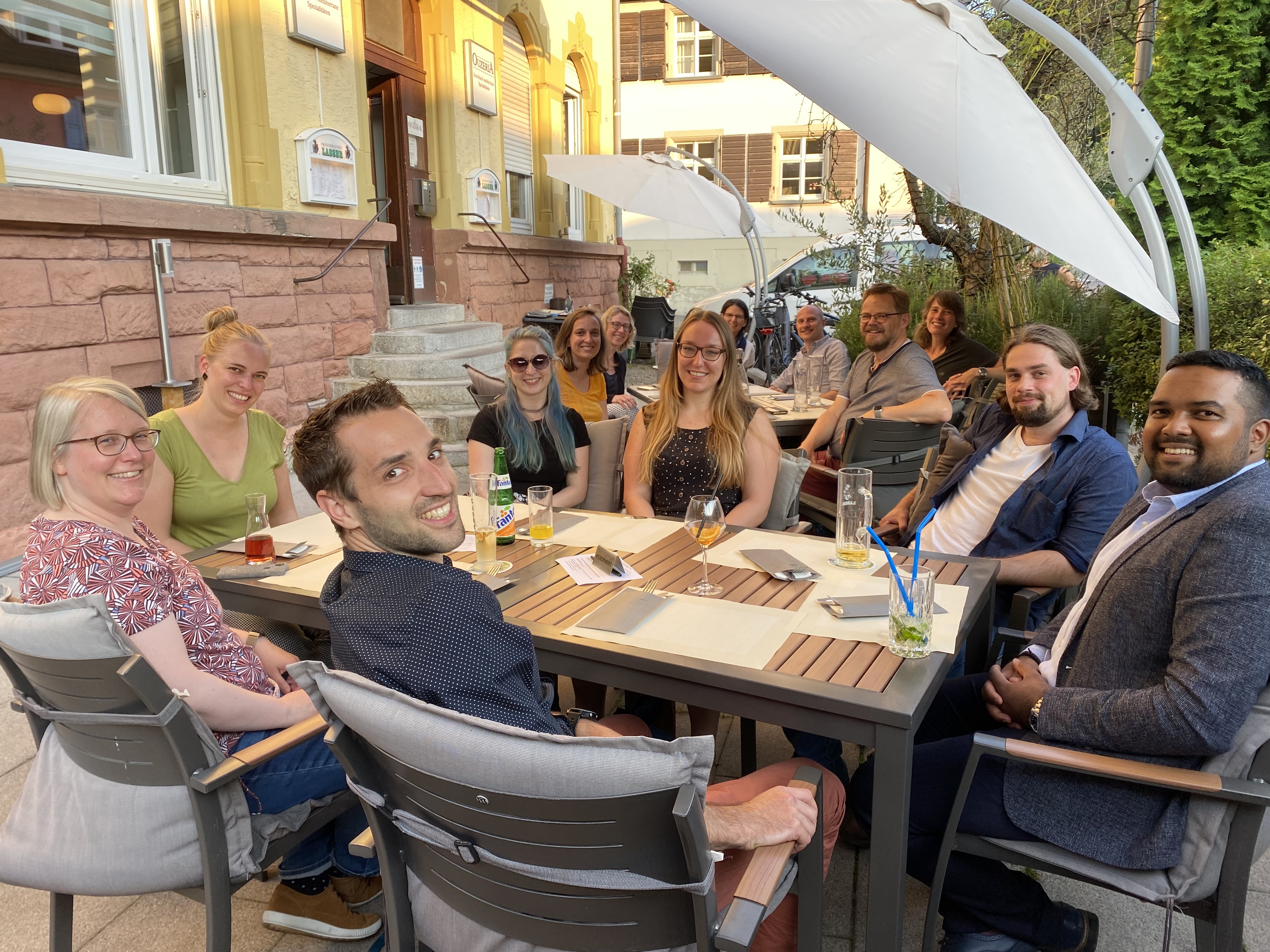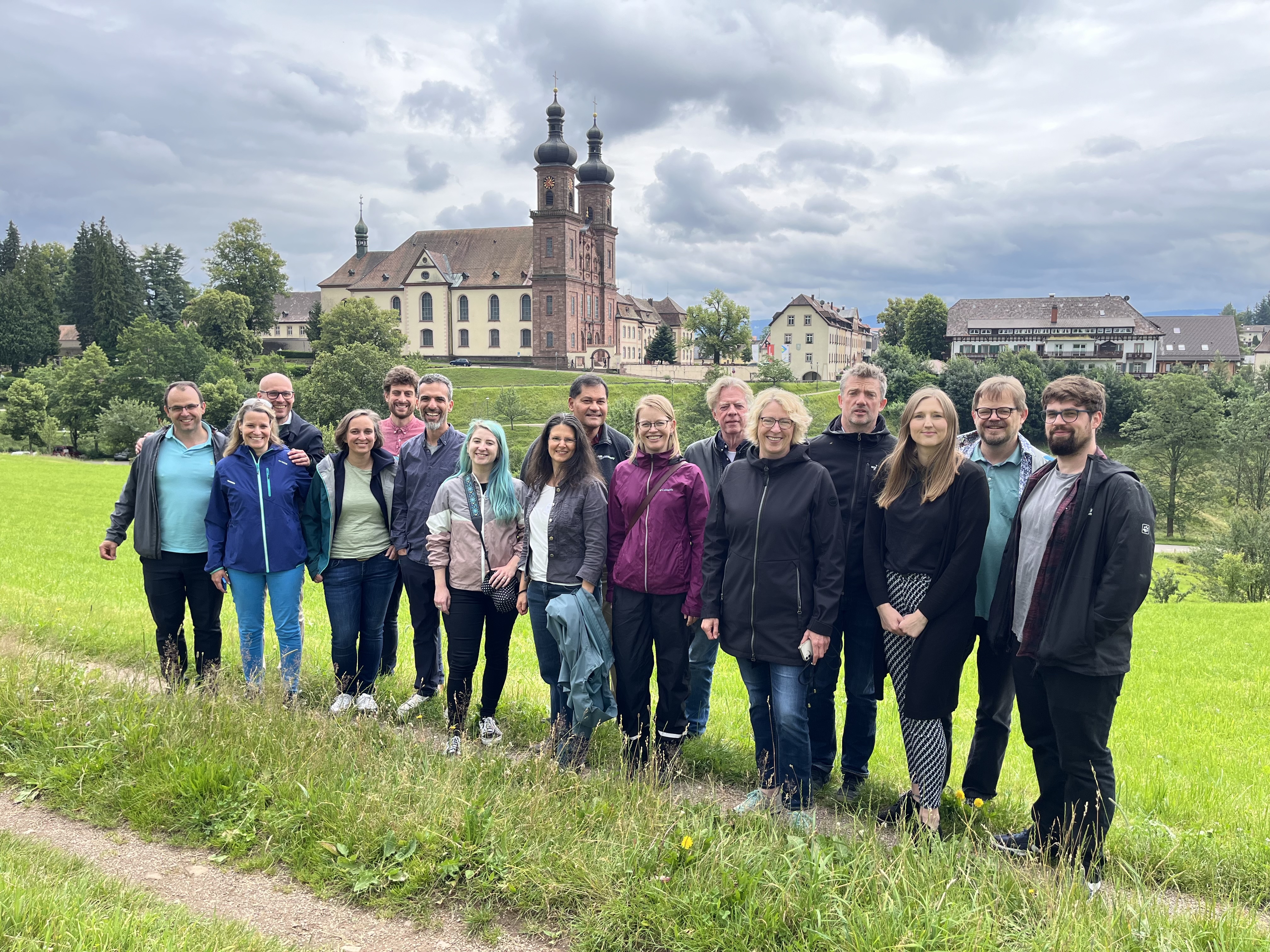

Problem solving prior to instruction (PS-I) – an instructional approach where learners tackle problems relating to concepts they have not yet learnt before receiving explicit instruction – has proven effective in boosting conceptual understanding and transfer and has therefore attracted substantial interest (Loibl et al., 2017; Sinha & Kapur, 2021). However, researchers have not yet agreed on a coherent theoretical and empirical foundation for its underlying learning mechanisms or its links to related approaches, such as example-based learning or learning from errors.
Our DFG-funded scientific network has addressed these gaps by fostering strong scientific collaboration across the field. This has resulted in symposia, highly visible publications and, most importantly, the development of a comprehensive framework for the cognitive analysis of composite instructional designs (CID; Loibl et al., 2024). This framework is a powerful tool for researching not only PS-I but any instructional designs that combine multiple distinct learning phases.
Using the CID framework, we can better understand, why and how the effects of instructional designs with multiple phases exceed those of the individual phases. It allows to describe and investigate how specific intermediate knowledge (i.e., the knowledge state resulting from a first instructional phase) alters and enhances subsequent learning processes. Analysing this interplay between knowledge and learning across multiple phases is key to understanding the effectiveness of composite instructional designs and helps reconciling conflicting findings in the literature. Since real-world instruction usually spans multiple phases, the CID framework mirrors authentic educational practice, and therefore has the potential to bridge the gap between educational research and classroom application, ultimately driving innovation in real classrooms. Thus, the CID framework provides a much-needed foundation for systematically investigating the complexities of multi-phase instruction.
Information
- Coordinator: Prof. Katharina Loibl
- Duration: 2020-2024
- Funding: DFG
Members of the network
- Prof. Dr. Katharina Loibl, University of Education Freiburg, Germany (speaker of the network)
- Antje Boomgaarden, University of Education Freiburg, Germany
- Charleen Brand, Ruhr University Bochum, Germany
- Prof. Dr. Anne Deiglmayr, Leipzig University, Germany
- Dr. Inga Frey, University of Freiburg, Germany
- Christian Hartmann, Technical University of Munich, Germany
- Dr. Sarah Hundertmark, Leibniz University Hannover, Germany
- Prof. Dr. Manu Kapur, ETH Zürich, Switzerland
- Prof. Dr. Timo Leuders, University of Education Freiburg, Germany
- Prof. Dr. Ido Roll, Technion Israeli Institute of Technology, Haifa, Israel
- Dr. Valentina Nachtigall, Ruhr University Bochum, Germany
- Prof. Dr. Nikol Rummel, Ruhr University Bochum, Germany
- Prof. Dr. Lennart Schalk, Schwyz University of Teacher Education, Goldau, Switzerland
- Tanmay Sinha, ETH Zürich, Switzerland
- Prof. Dr. Tamara van Gog, Utrecht University, The Netherlands
Publications
Special Issue
- Editorial: Loibl, K., Nachtigall, V., & Leuders, T. (2025). Advances in research on composite instructional designs – Investigating intermediate knowledge and preparation effects. Instructional Science. https://doi.org/10.1007/s11251-025-09751-6
- Framework: Loibl, K., Leuders, T., Glogger-Frey, I., & Rummel, N. (2024). CID: a framework for the cognitive analysis of composite instructional designs. Instructional Science. https://doi.org/10.1007/s11251-024-09665-9
- Contributions:
- Baumgartner, V., Daguati, S., Trninic, D., Akveld, M., Caspar, A., Hungerbühler, N. & Kapur, M. (2025). Problem-solving before instruction for learning linear algebra in university mathematics. Instructional Science. https://doi.org/10.1007/s11251-025-09709-8
- Braas, T.C., Hartmann, C., Hoogerheide, V., Rummel, N., & van Gog, T. (2025). When is observing failure productive? Investigating the role of solution diversity in vicarious failure. Instructional Science. https://doi.org/10.1007/s11251-025-09706-x
- Brand, C., Loibl, K., & Rummel, N. (2025). Prior knowledge activation as preparation prior to instruction: does the coverage of relevant prior knowledge affect learning?. Instructional Science. https://doi.org/10.1007/s11251-025-09727-6
- Ganaiem, E., & Roll, I. (2025). Investigating the order of example-problem sequences when learning experimental design and graphing competencies. Instructional Science.https://doi.org/10.1007/s11251-025-09750-7
- Krause-Wichmann, T., Klopp, E., Stark, L., & Stark, R. (2025). Promoting future teachers’ pedagogical knowledge: The role of self-generated vs. provided illustrative examples after instruction. Instructional Science.https://doi.org/10.1007/s11251-024-09694-4
- Leukel, C., & Loibl, K. (2025). Problem-solving prior to instructional explanations when learning javelin throwing in primary school. Instructional Science. https://doi.org/10.1007/s11251-024-09700-9
- Loibl, K., & Leuders, T. (2024). Can failure be made productive also in Bayesian reasoning? A conceptual replication study. Instructional Science. https://doi.org/10.1007/s11251-024-09670-y
- Saba, J., Kapur, M., & Roll, I. (2025). Learning about multivariable causality with interactive simulations: exploration before instruction may hurt immediate gains but benefits transfer. Instructional Science. https://doi.org/10.1007/s11251-025-09726-7
- Velić, L., & DeCaro, M.S. (2025). Comparing effectiveness of exploratory learning activities given before instruction: generating multiple strategies vs. inventing one strategy. Instructional Science. https://doi.org/10.1007/s11251-024-09701-8
- Contributions:
Proceedings
- Loibl., K., Leuders, T., Glogger-Frey, I., & Rummel, N. (2023). Cognitive Analysis of Composite Instructional Designs: New Directions for Research on Problem-Solving Prior to Instruction. In C. Damsa, M. Borge, E. Koh, & M. Worsley (Eds.), Proceedings of the 16th International Conference on Computer-Supported Collaborative Learning - CSCL 2023 (pp. 321-324). Montreal, Canada: International Society of the Learning Sciences.
Symposia at international conferences
- Loibl, K., & Leuders, T. (2023, August). Problem-solving prior to instruction as an example of composite instructional designs. Symposium at the 20th European Conference for Research on Learning and Instruction (EARLI), Thessaloniki, Greece.
- Contributions:
- Ockl, K., Schulz, C., Schalk, L., Glogger-Frey, I. (2023, August). Open problem-solving, working on solved problems or fading to prepare for learning from instruction? Paper presented in the Symposium at the 20th European Conference for Research on Learning and Instruction (EARLI), Thessaloniki, Greece.
- Brand, C., Loibl, K., & Rummel, N. (2023, August). The role of students’ breadth of prior knowledge activation in preparation for learning. Paper presented in the Symposium at the 20th European Conference for Research on Learning and Instruction (EARLI), Thessaloniki, Greece.
- Fässler, C., Sinha, T., Schmied, C. M., Goldhahn, J., & Kapur, M. (2023, August). Formative feedback timing problem-solving in virtual environment simulations for medical education. Paper presented in the Symposium at the 20th European Conference for Research on Learning and Instruction (EARLI), Thessaloniki, Greece.
- Leukel, C., & Loibl, K. (2023, August). Problem-solving prior to instruction in motor learning – the case of javelin throwing. Paper presented in the Symposium at the 20th European Conference for Research on Learning and Instruction (EARLI), Thessaloniki, Greece.
- Contributions:
- Glogger-Frey, I. (2024, August). DFG-network – Problem-solving before instruction: Investigating mechanisms and new application areas. Symposium at the Conference of SIG 6 & 7 of the European Association for Research on Learning and Instruction (EARLI), Tübingen, Germany.
- Contributions:
- Mertineit, A.-K., Nachtigall, V., & Rummel, N. (2024, August). Applying PS-I in the Context of Addressing People’s Knowledge Gaps about Email Threats. Paper presented in the Symposium at the Conference of SIG 6 & 7 of the European Association for Research on Learning and Instruction (EARLI), Tübingen, Germany.
- Saba, J., Kapur, M., & Roll, I. (2024, August). Applying PS-I in the Context of Promoting Multivariable Causality Reasoning via Simulations. Paper presented in the Symposium at the Conference of SIG 6 & 7 of the European Association for Research on Learning and Instruction (EARLI), Tübingen, Germany.
- Brand, C., Loibl, K., & Rummel, N. (2024, August). Prior Knowledge Activation as Mechanism in PS-I: The Role of Goal Formulations. Paper presented in the Symposium at the Conference of SIG 6 & 7 of the European Association for Research on Learning and Instruction (EARLI), Tübingen, Germany.
- Ockl, K., & Glogger-Frey, I. (2024, August). Exploring cognitive mechanisms in PS-I: Problem solving versus self-explaining problem solutions. Paper presented in the Symposium at the Conference of SIG 6 & 7 of the European Association for Research on Learning and Instruction (EARLI), Tübingen, Germany.
- Contributions:
- Loibl, K., & Leuders, T. (2025, August). The role of intermediate knowledge in composite instructional designs.Symposium at the 21th European Conference for Research on Learning and Instruction (EARLI), Graz, Austria.
- Contributions:
- Brand, C., Loibl, K., & Rummel, N. (2025, August). Do goal formulations affect the breadth of intermediate knowledge and impact learning in PS-I? Paper presented in the Symposium at the 21th European Conference for Research on Learning and Instruction (EARLI), Graz, Austria.
- Ockl, K., Graf, V., & Glogger-Frey, I. (2025, August). Effects of preparation activities on two kinds of intermediate knowledge and exploring a new measure. Paper presented in the Symposium at the 21th European Conference for Research on Learning and Instruction (EARLI), Graz, Austria.
- Horesh, G., Heyd-Metzuyanim, E., & Roll, I. (2025, August). Failed attempts as preparation for subsequent instruction. Paper presented in the Symposium at the 21th European Conference for Research on Learning and Instruction (EARLI), Graz, Austria.
- Dikme, C., Leuders, T., Brunner, K., & Loibl, K. (2025, August). Adapting the comparison of incorrect and correct solutions to students’ intermediate knowledge. Paper presented in the Symposium at the 21th European Conference for Research on Learning and Instruction (EARLI), Graz, Austria.
- Contributions:
Transfer publication
- Leuders, T., & Loibl, K. (2025). Entdeckendes Lernen – mit explizitem Erklären. Wirksamer Unterricht, 12. Institut für Bildungsanalysen Baden-Württemberg. https://ibbw-bw.de/site/pbs-bw-rebrush2024/get/documents_E-65692833/KULTUS.Dachmandant/KULTUS/Dienststellen/ibbw/Empirische%20Bildungsforschung/Programme-und-Projekte/Wirksamer_Unterricht/IBBW_WU12_Entdeckendes_Lernen_BF.pdf



